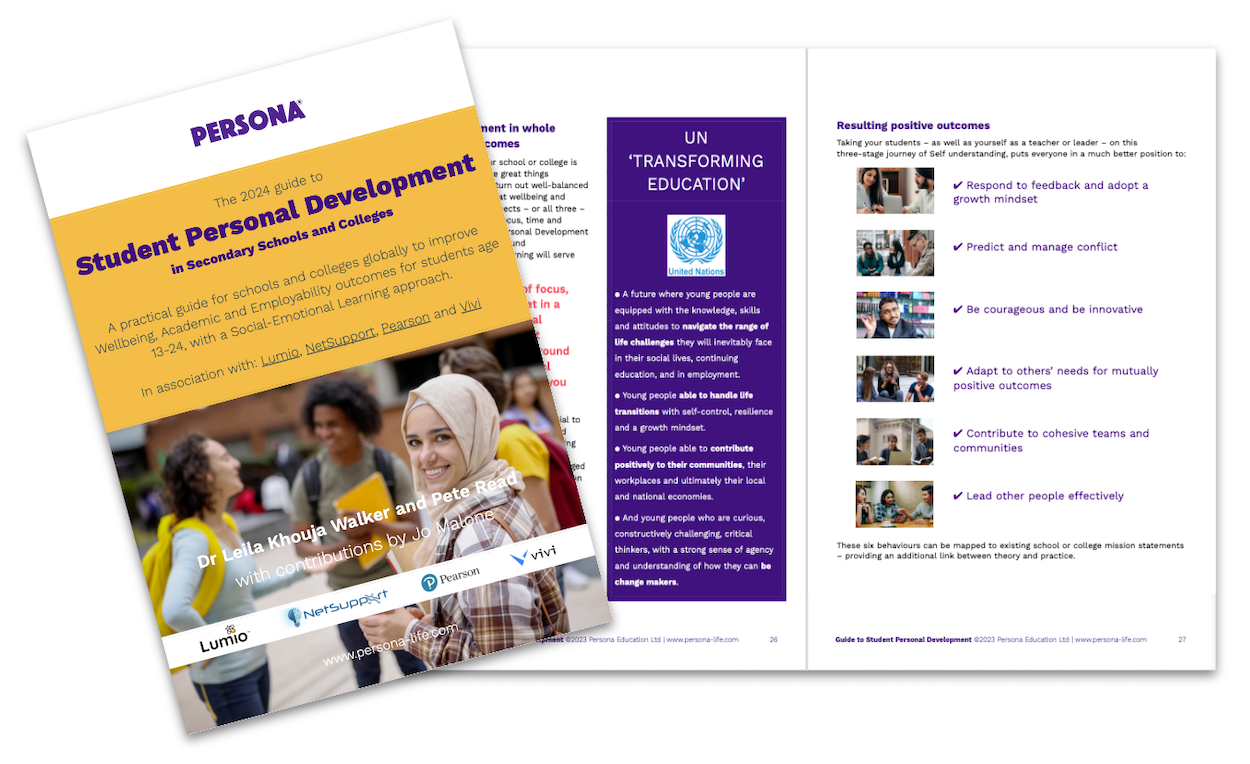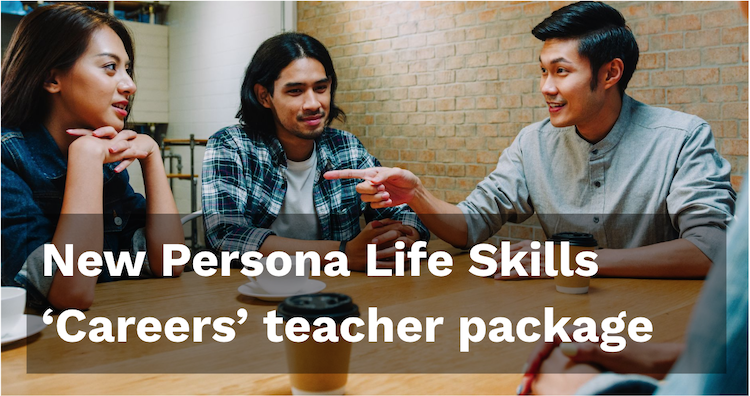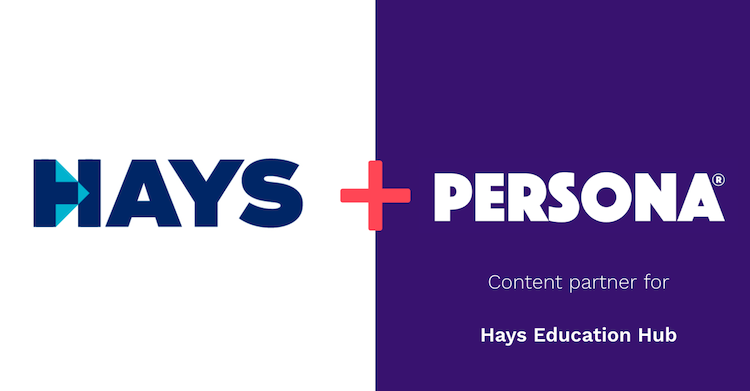How academic outcomes benefit from social-emotional learning in secondary schools

For many secondary schools and colleges, social-emotional learning (SEL) has traditionally been seen as something of an add-on. But academic results are not actually higher in schools where SEL is put on the back burner. In fact the reverse is true.
Updated 26-Feb-24 (original article 31-Aug-21)
By Pete Read, CEO & Co-founder
For many secondary schools, social-emotional learning (SEL) has traditionally been seen as something of an add-on. Not examined, not mandated nor compulsory, prioritising SEL is often difficult for secondary schools faced with three major barriers (more thoughts on these by my colleague Dr Leila Khouja Walker here):
1. Curriculum planning prioritises exam subjects because these produce measurable results that are easily understood by educators, parents, students, inspectors and policy-makers alike.
2. In many schools teachers are already stretched, and teacher workload needs to be reduced, not increased. Asking teachers who are not SEL or Personal Development specialists, but might teach anything from chemistry to modern foreign languages, to deliver SEL puts an extra unwelcome burden of work on them.
3. Schools know at heart that SEL is important, and therefore do deliver it in some form, eg. as part of a PSHE or SMSC curriculum, but most teachers asked to make that happen are non-specialists with no training in teaching PSHE/SMSC or developing social-emotional skills. Not ideal for the student recipients, as the quality of SEL teaching can end up being very mixed at best.

But wait! What if barrier #1 – prioritising exam subjects over SEL – could be eliminated, because SEL actually helps to improve academic outcomes? That would mean it would make sense to allocate more time for teachers to teach SEL. Goodbye barrier #2. It would also create a rationale for providing more SEL teacher training for non-specialists, and investing in developing or hiring more SEL specialists. Barrier #3 up in smoke!
Now consider this: Prioritising resources and curriculum time for examined subjects over social-emotional learning is a false logic. Academic results are not actually higher in schools where SEL is put on the back burner and academic subjects prioritised. In fact the reverse is true.
In the words of one UK headteacher:
“Schools that drill children for results or support children’s well being and rounded development as an afterthought to data are in trouble.” (EduCare)
A report published in 2019 by Towards Global Learning Goals, an Abu Dhabi education network, criticised an over-reliance on exams, saying that many schools were failing to equip children with the relevant skills they need for success and happiness in the real world.
Evidence in support of SEL
There is robust evidence both from independent research, and from forward-thinking schools, pointing to a positive correlation between investing time and resources in a well-developed SEL programme, and improved, measurable academic outcomes.
Research by the Centre for Education & Youth in December 2022, reported evidence that having strong social-emotional skills enables students to create the foundations to become successful learners, and leads to gains in academic performance.
And an Education Endowment Foundation review of SEL estimated that successful secondary school SEL interventions in schools drive, on average, up to five months of further progress in academic outcomes.
An extensive July 2023 study by the Yale Child Study Center found that students who participated in SEL programs do better academically, demonstrating increased academic achievement and school functioning, including improved attendance and engagement in learning.
In March 2021 The Guardian newspaper in the UK reported that:
“Emotional wellbeing is fundamental and foundational for academic attainment. A stressed, anxious child will have difficulty learning anything. On the flip side, promoting wellbeing can boost academic outcomes. A meta-analysis of 213 school-based, social and emotional learning programmes demonstrated an 11% boost in results in standardised achievement tests.”
This may seem to be common sense, but historically many schools have put direct effort on academic attainment first, and treated wellbeing and social-emotional learning as something to be dealt with only when issues arise. There is in fact reliable empirical evidence supporting the case for treating wellbeing as a 'vitamin' rather than a 'sticking plaster'.

Emotions can support or impede pupils’ learning, their academic engagement, work ethic, commitment, and ultimate school success, according to the research referred to by the Guardian, above. This was a meta-analysis of a wide body of existing research, conducted by Public Health England in 2014.
Conclusions included:
- A 10-20% boost in results in standardised achievement tests is attributable to improving pupils’ social-emotional learning.
- Whole-school approaches to social-emotional learning strongly correlate with higher attainment.
- School-based social-emotional learning programmes benefit pupils’ wellbeing, offering a significant return for the resource and time investment.
The UK public school inspectorate, Ofsted, has identified a strong correlation between schools that achieved a high grade for personal, social, health and economic education (PSHE) and those that were graded outstanding for overall effectiveness.
Meanwhile in the United States, Daniel Goleman – one of the founders of the Collaborative for Academic, Social, and Emotional Learning (CASEL) reported in April 2021 on an analysis of more than 270,000 students. Half took SEL courses alongside their standard academics, and the other half took only the academic courses. The research found that those taking the SEL courses ended up with 10% higher learning positivity (liking school, feeling someone at school cares about them, good class attendance) and their academic achievement test scores were 11% higher on average.
Even the students themselves agree: In a survey of young people in the UK by Skills Builder, 77% said they believe social-emotional skills are important for academic performance in areas such as essays, coursework and exams.
Pick a framework
Social emotional learning can take many forms, ranging from learning about what is acceptable language to use when navigating the ups and downs of your first romantic relationship, through to building resilience through sport.
Similarly, there are many SEL frameworks available and there is a lot of consistency between them, with a focus on life skills (also known as “soft skills”, "human skills, "durable skills" etc., especially in relation to preparing for the workplace) built around how we think, communicate and behave in different situations, and the potential to improve outcomes both for ourselves and others involved in a given situation.
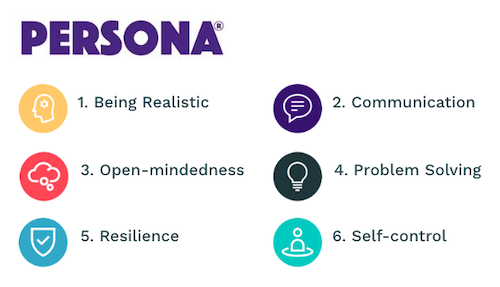
Persona Life Skills for example, our own online SEL platform, is centred around developing 22 life skills across six skillsets: Being Realistic, Communication, Open-mindedness, Problem Solving, Resilience, and Self-control.
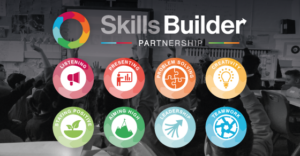
Skills Builder, the UK based not-for-profit, has identified and defined eight “essential skills” which help to prepare secondary students to succeed in education and beyond: Listening, Speaking, Problem Solving, Creativity, Staying Positive, Aiming High, Leadership, and Teamwork.
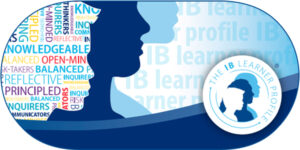
The International Baccalaureate Learner Profile outlines ten attributes valued by IB World Schools, which they believe can help students become responsible members of local, national and global communities. Several of these are social-emotional in nature: Communicators, Principled, Open-minded, Caring, Risk-takers, Balanced, Reflective.
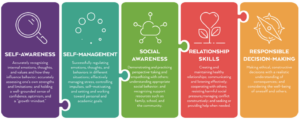
And US-based CASEL, the Collaborative for Academic, Social, and Emotional Learning, promotes the teaching and use of five “core competence areas”: Self-Awareness, Self-Management, Responsible Decision-Making, Relationship Skills, and Self Awareness.
Embedding SEL into whole school culture
The COVID-19 pandemic – with all the social and emotional trials it forced up on our young people – shifted the focus of many educators, schools and education ministries towards student wellbeing. But even before the outbreak, some of the most successful international school groups had already built their ethos and culture around student (and teacher) social-emotional wellbeing.
Here are two examples of how a well-developed, integrated SEL programme can help to deliver excellent academic results.

Arguably one of the most notable examples is Cognita, an international education group with over 80 schools across 12 countries. Cognita aims to go beyond grades and develop all-round academic excellence. It does this by centering its whole culture and all its schools upon wellbeing, which it defines as being “socially, emotionally and physically flourishing.”
Cognita says that their schools focus on wellbeing throughout the year, but together on a dedicated ‘Be Well Day’ – usually in September – they all collapse the curriculum in order to focus on wellbeing as a global family. The day acts as an annual reminder of the priority Cognita places upon equipping young people with social-emotional skills that prepare them to grow, thrive and succeed in a fast-changing world.

Another example: Wellington College, based in the UK with six international schools in Thailand and China, lays claim to pioneering the teaching of wellbeing in mainstream education, as the first school in the UK to introduce a course in happiness and wellbeing in 2006, under the direction of the now well-known social-emotional teaching and learning pioneer Sir Anthony Seldon, headteacher at the time.
One of the key social-emotional learning approaches pioneered at Wellington college is the Harkness Table. Students are asked to look into solving certain problems before class, and when they then come to class, these problems are discussed and resolved by the students together, usually sitting in an oval formation, for example around a table.
Harkness develops problem-solving skills, encourages teamwork, helps build strong relationships between peers, and improves listening and speaking. It has found its way into many top tier international schools, for example Cranleigh Abu Dhabi, where it was introduced by a deputy headteacher who was previously part of the inaugural Harkness team at Wellington College.
SEL – an investment in outcomes
Regardless of the framework or the exact approach adopted, the weight of evidence is in favour of prioritising social-emotional learning to support better academic performance. And we haven’t even touched on the social and employability benefits that go along with it.
So, whether your school is aiming to achieve great things academically, or turn out well-balanced students with great wellbeing – or both – an investment of focus, time and budget in a solid social-emotional programme will serve you and your students well.
A version of this article was first published in Teach Middle East Magazine.
Persona Education offers free trial access to its Persona Life Skills e-learning platform for secondary schools and colleges interested in developing their pupils’ social & emotional life skills, to boost wellbeing and employability.
About the author: Pete Read co-founded Persona Education in 2019 to bring the benefits of personality insights to young people. Before founding Persona, Pete built several consulting and software companies in Europe and Asia, one of which was rated the no.1 consulting company to work for in Asia-Pacific by Vault.com, winning best-in-class on diversity, gender equality and LGBTQ+ equality. www.persona-life.com

